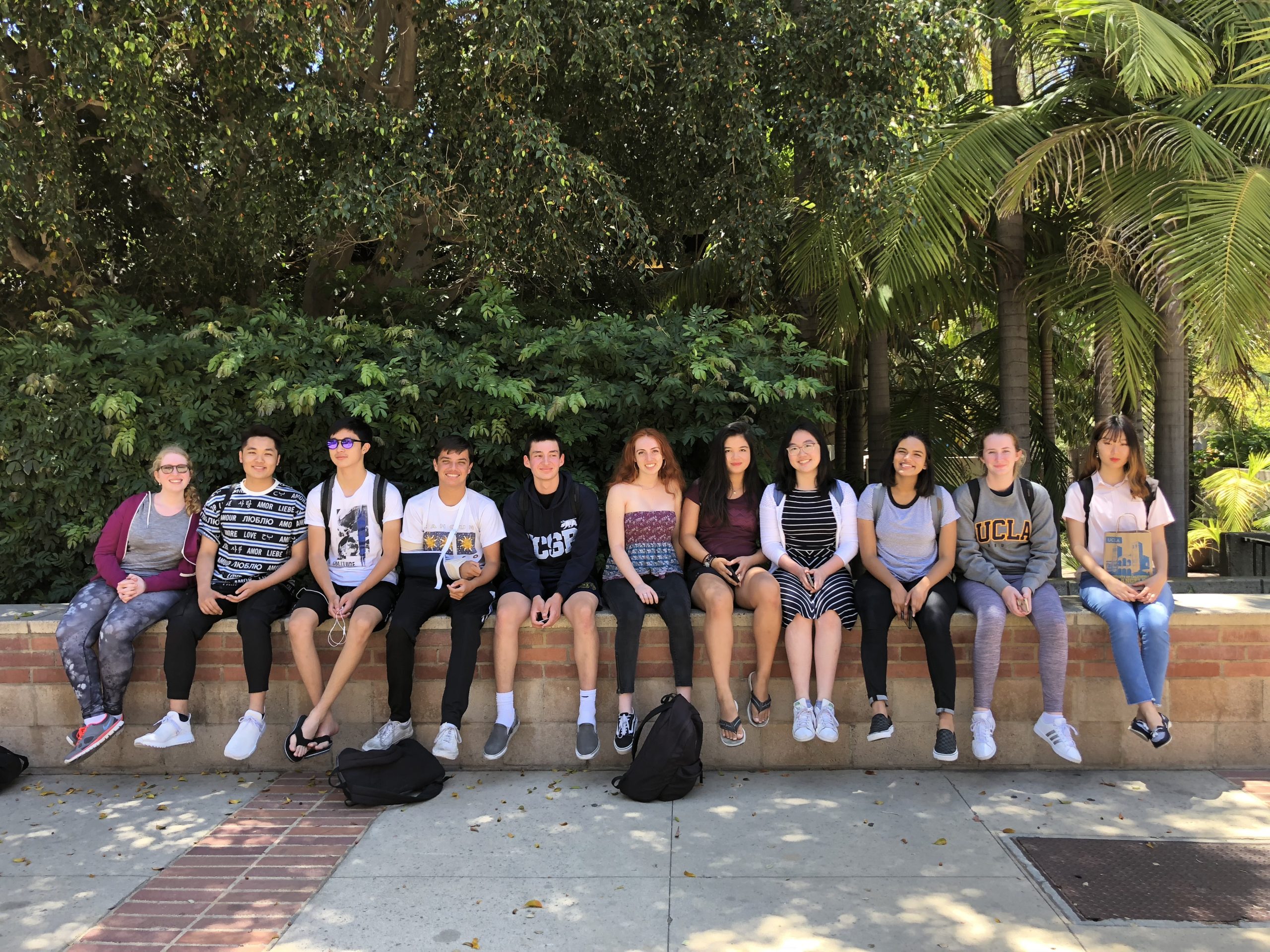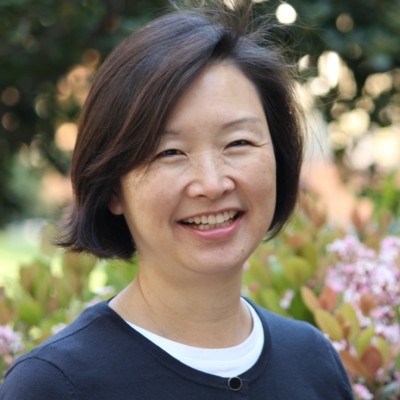Engage in historical role-playing to analyze international issues

Explore international events through in-depth study of specific moments in history
Join us this summer for our Immersive International Studies Summer Institute, two consecutive week-long intensive programs for high school students who are interested in international issues, history, government, and role-play utilizing the innovative pedagogy of Reacting to the Past (RTTP), an award-winning series of immersive sessions (or “games”) that actively engage students in their own learning with its emphasis on research, writing, and oral argumentation. Students assume the roles of historical characters, bringing their character alive in order to explore pivotal moments in history, all while receiving guidance in practicing critical thinking and reading as well as argumentative speaking and writing.
This Summer Institute emphasizes active learning to develop an understanding of international issues and developing a diverse skill set such as persuasive speaking, critical thinking, research skills, problem-solving, teamwork, expository writing, and leadership skills. Reacting to the Past is a series of historical role-playing games that explore important ideas by re-creating the contexts that shaped them. Students are assigned roles, informed by texts set in particular moments of intellectual and social turmoil.
Immersive International Studies Summer Institute Program Overview
Track A – The French Revolution
Rousseau, Burke, and Revolution in France, 1791 plunges students into the intellectual, political, and ideological currents that surged through revolutionary Paris in the summer of 1791. Students are leaders of major factions within the National Assembly (and in the streets outside) as it struggles to create a constitution amidst internal chaos and threats of foreign invasion. Students will become familiar with primary sources such as Jean-Jacques Rousseau’s Social Contract and Edmund Burke’s Reflections on the Revolution in France, among other texts.
Track B – 1945 India
Students who participate in the Defining a Nation module will be immersed into India’s historical struggle for sovereignty and identity, exploring the time period when the British viceroy invited key religious and political leaders to Simla, India to decide the fate of an independent India. Taking on roles of actual and unnamed characters such as Mohandas Gandhi, Jawaharlal Nehru, Muhammad Ali Jinnah, a Sikh leader, member of rural Hindu India, and others, students will decide the fate of post-British India. Students must stay true to their character and faction, but this is more than a simulation as students will determine how their version of India will look.
Application deadline: June 1, 2024 | Enrollment deadline: June 15, 2024
Applications are reviewed and admission to the program is granted on a rolling basis starting February 15th. Applying at your earliest convenience, prior to June 1st, is highly recommended.
The program has application requirements for admission. Eligible applicants who successfully submit all requirements will be reviewed and notified via email of an admission decision within 3 weeks.
Applicants are required to provide the following during the online registration process:
- An unofficial transcript from grade 9 to present reflecting a cumulative GPA of 3.2 or higher
- If your school transcript utilizes a different grading system, please submit your transcript as is. If available, please attach a translation/equivalency guide.
- INTERNATIONAL STUDENTS: If you are an international student, a transcript refers to your complete secondary academic record. To learn more about converting your grades into a US-based GPA, please click here.
- If your school has a translation/equivalency guide, please also include it with your transcript. If you do not have a translation/equivalency guide, please still submit your most up-to-date transcript as is for staff to review.
- Value statement: At the time of registration, ALL applicants will be prompted to submit a few short sentences reflecting on their pursuit of participation in a UCLA Precollege Summer Institute. Please note that students are strongly discouraged from relying on ChatGpt/AI tools for their application responses and are encouraged to submit original and authentic answers.
As a commuter program, there is NO on-campus housing available for the Immersive International Studies Summer Institute.
Participants of the Immersive International Studies Summer Institute must commute to the UCLA campus each day of the program. Specific location information (e.g. classroom) will be provided to enrolled students closer to the start of the program.
Parking:
Summer Sessions parking permits will be available beginning May 30 on a first-come, first-served basis. Students have the option to purchase a summer term permit or a daily permit.
Please review the Transportation and Parking Services web page and read the “Summer Quarter Parking (All Students)” section for more information on all permit types, including cost.
Coursework
International and Area Studies 10; 2 units
Grading
Students will receive a Pass/No Pass (P/NP) upon completion. To receive a “Pass” notation, students must earn a letter grade of C or better. See University Credit, Grades and Transcripts for more information about academic credit.
In order to successfully complete the program, students are not allotted any excused or unexcused absences.
UCLA Summer Sessions Summer Scholars Support
Qualified students attending grades 9th – 11th in Spring 2024 in the state of California may be eligible for Summer Scholars Support, a need- and merit-based scholarship offered by the UCLA Summer Sessions Office. Students must be 15 years old by the first day of Summer Sessions 2024 on June 24th in order to participate in a Precollege Summer Institute and/or apply for Summer Scholars Support. A limited number of full and partial scholarships are available to support enrollment in SCIP/eSCIP, one Summer Course, or a Precollege Summer Institute.
Summer 2024 deadline to apply: March 15.
Track A: July 8, 2024 – July 12, 2024
Commuter
Track B: July 15, 2024 – July 19, 2024
Commuter
Program Eligibility: 9th-12th grade in Spring 2024*
Application deadline: June 1, 2024
Enrollment deadline: June 15, 2024
*All participants must be at least 15 years of age by the first day of Summer Sessions 2024 on June 24th, no exceptions allowed.
The schedule and syllabus are subject to change. Enrolled students will be given updated materials closer to the program start date.
Fees and Payment Info
The program fee includes the unit fees for the UCLA coursework offered as part of the program and thus varies by UC student status. In addition to the program fee, students are assessed other campus and administrative fees during the summer. This is a summary of fees that commonly apply to the selected student type.
Actual tuition and fees are subject to change by the University of California. Visit the fees, payment, and financial aid section for important disclaimer, as well as more details on fees, payment instructions, and information on delinquency, refunds, and financial aid.
Meet your instructors
Dr. Jennifer Jung-Kim
LecturerLeading the UCLA Immersive International Studies Summer Institute 2024 is Dr. Jennifer Jung-Kim, who has a PhD in Korean history from UCLA. She is a lecturer in the Department of Asian Languages and Cultures, Program in International and Area Studies, and the Honors Collegium Program at UCLA, teaching interdisciplinary courses on Asia as well as upper-division courses on Korean history and culture. She is honored to have been a recipient of the 2021 UCLA Distinguished Teaching Award. Dr. Jung-Kim is a strong advocate of Reacting to the Past, having co-written the 1894 Korea game and served on the Reacting Advisory Board. She teaches historical role- playing games because students enjoy and retain what they learn in a proactive, immersive environment.

Kendell Clarke
InstructorKendell Clarke is a PhD candidate in the European Language and Transcultural Studies department at UCLA. She specializes in 17th and 18th century French literature and is currently studying Imaginary travel accounts and exploration of other worlds.

Immersive International Studies Summer Institute FAQ
Yes!
Track A – The French Revolution
- Jennifer Popiel, Gary Kates, and Mark C. Carnes, Rousseau, Burke, and Revolution in France,
1791 (Chapel Hill: University of North Carolina Press, 2022).
Track B – 1945 India
- Ainslie T. Embree and Mark C. Carnes, Defining a Nation: India on the Eve of Independence, 1945, 2nd ed. (Chapel Hill: University of North Carolina Press, 2024).
Aside from the readings before the program starts, there is minimal homework during the week because students will have ample time in class to write their assignments under the guidance of the professor. If a student needs more time, he/she will be able to complete the assignment at home in the evening.
No.
Students are encouraged to bring a computer, iPad/tablet, or at least a smartphone with some editing capabilities each day.
Still have questions? Check out the general Summer Institutes FAQ.

